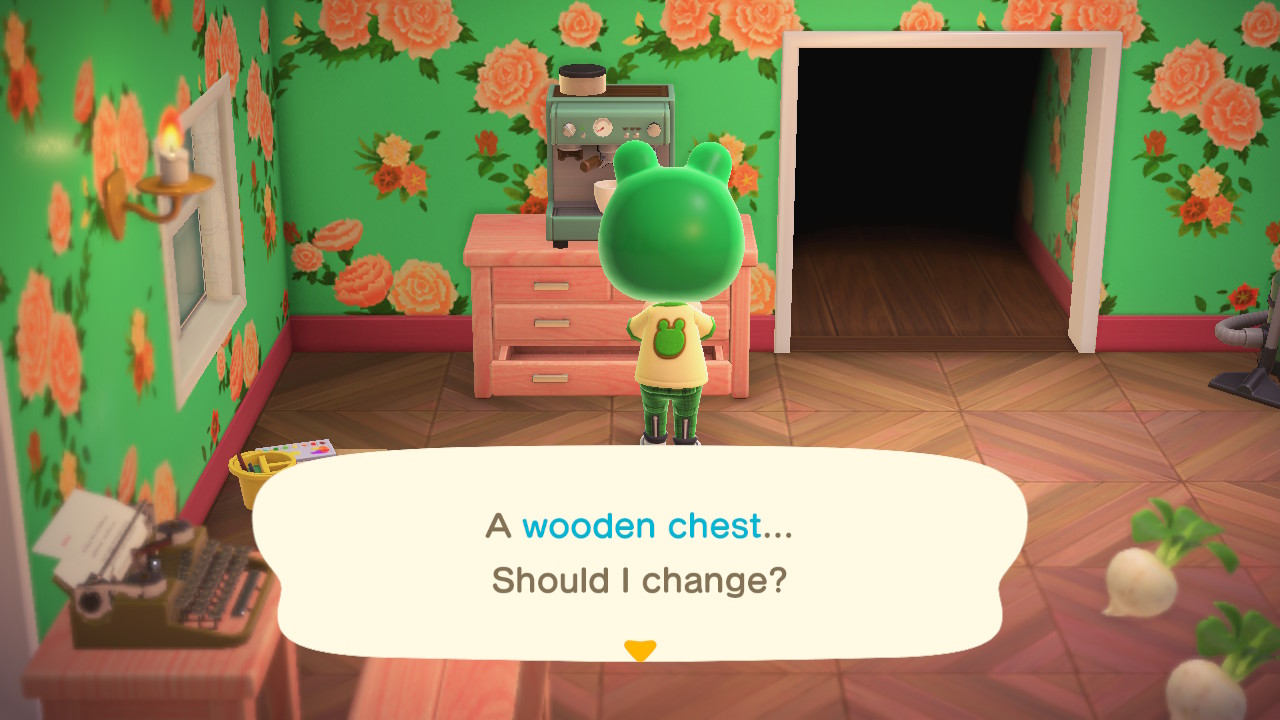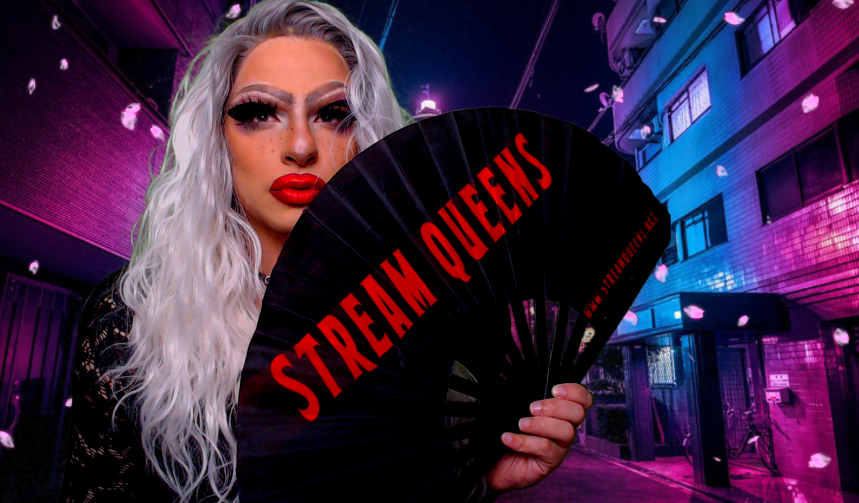
Animal Crossing’s Queer Horizons
Not one scroll of Twitter goes by these days without seeing Animal Crossing. It’s ubiquitous, which isn’t surprising now it’s officially the fastest selling Switch game. Fans are sharing their custom designs, creating memes, hosting game shows, or just showing off the hours of work they’ve put in. It’s testament not just to our collective boredom during lockdown, but the quality of the game itself.
What’s even more remarkable is how much of this content is from the LGBTQ community, from shipping its characters, to inside jokes, and even fully live-streamed drag shows. As if Animal Crossing wasn’t mainstream gay enough, even Queer Eye got in on the act recently with the show’s home designer Bobby Burke giving decor advice to budding interior designers.
Sure, the game is full of subtle allusions to sexuality for us to read into, be they canon or not, and small nods like rainbow clothing are widely appreciated. But more broadly, what is it about Animal Crossing that’s just so…queer?
For one, this is a game about self-expression. From the very beginning you can customise your own avatar, your home, and eventually the entire island. For the LGBTQ community, this presents an opportunity to express themselves in a way that may not be possible in other games, or even reality.
“As a woman playing games, finding characters you can identify with was often hard for me as a kid,” says Cafe Ela, streamer and member of the LGBTQ Twitch team Rainbow Arcade. “I was always desperately trying to find players or characters that I could represent myself with as the girl. And in Animal Crossing you see that freedom to not only choose your character but make it look like yourself and that’s really awesome.”
She explains further: “You set your own individual rules and aesthetics. That’s a wonderful way to have this little world where everything is not like in real life. Maybe you can’t express yourself for whatever reason in your real life, but it’s really nice to find your own identity [in the game].”
Mermaid Queen Jude, another member of the Rainbow Arcade, feels similarly. “There’s this non-heteronormative feeling around Animal Crossing, especially as you can change your gender expression and clothing on a whim,” she says. “You don’t have to jump through hurdles to express who you are…[the game] allows people to feel validated and seen. Isn’t that all that we really want? We just want to be seen.”

Many LGBTQ gamers are drawn to games with character customisation, to create their ideal self. But this is particularly important for trans gamers who may be struggling with their identity.
“Having the opportunity to just make a statement and have that self expression is something that you don’t get very often,” explains trans streamer Mia Byte. Animal Crossing’s lack of gender options and ability to wear clothing that’s typically more masculine or feminine presenting is massively beneficial. Says Mia: “It’s just pure escapism and a place where you can be yourself. I think that’s one of the most important things for anybody who’s part of this community. It’s pure expression.”
For drag queen streamer Deere, the game’s focus on self-expression mirrors her drag – surprising for a queen who’s known for playing horror games. “I love to be on the edge of my seat, but I also love to customise a character and dress how I want. Generally, socially you’re supposed to dress certain ways and I like drag because it subverts that idea,” she says.
In the lead up to release, she created a series of drag looks inspired by the game’s villagers that garnered a positive response from her fans.
“Something so special about Animal Crossing is that the characters, especially the snooty characters, use makeup to evoke their personality,” says Deere. “So that just spoke to me, the rude, bitchy, snooty girl has really heavy eyeshadow and lipstick on. I think that’s so cute. It’s a parody of real life.”
Jambette, a frog character with oversized lips, lends herself in particular to drag. The back of the e-reader card for her jokes that she goes through a tube of lipstick a week. Deere was particularly drawn to the Animal Crossing characters because Nintendo specified their use of makeup, it’s not just the cartoon use of colour to distinguish the characters. “I just found it so cool and funny that Animal Crossing drew that line. Yes, these animals put on their makeup every day and that’s just who they are, that’s like real life,” says Deere. “I relate!”
Drag Animal Crossing shows have become something of an event online, with popular streamers hosting pageants and livestreaming to their fans. Justin Moore, co-founder of Rainbow Arcade, has had particular success with this – Ru Paul’s Drag Race star Ongina even took part as a judge. Participants are invited to his island where he’s set up a runway. They then catwalk in their best custom outfits – reveals and all – with Justin commenting hilariously throughout. The Twitch chat then vote for their favourites.
“For me, this is absolutely the most fun I have ever had streaming, and I know everyone who watches has been really enjoying it,” says Justin. “Even if we can’t all hang out together due to the times, these streams and competitions have been one way for us all to come together, laugh, and throw our worries away even if just for a little while.”
Justin isn’t alone. Drag streamer Eevolicious also hosts a Friday Fashion Show on her channel. It’s not specifically a drag show, but the game’s lack of gender options has made this inevitable.
“I wanted boys and girls to participate. I know drag is available for everyone, but some preconceived ideas from some people might not align with that,” she says. “And then those people who I first thought would just present themselves as boys came up with looks in drag. It was surprising to me. [The game has] opened a lot of possibilities, it’s so progressive!”
Outside of drag, though, it’s the sense of community that has really drawn LGBTQ people together. This is a game that relies on collaboration to get the most out of it, bringing people together through positivity and wholesomeness. As Jude says: “The LGBT community has always been really good at creating their own spaces. And Animal Crossing is just another variant of that. It’s another platform for us to build community on.”
And that community has resulted in a safe space for queer people to simply be themselves. Moreover, Animal Crossing is universal, with its adorable aesthetic and relaxing gameplay. Not only is it bringing together LGBTQ gamers, it’s crossing boundaries between sexualities. As streamers draw in varied audiences from across the globe, fans are forming bonds between themselves to chat, swap items, and share turnip prices.
“It always warms my heart how nice people are,” says Ela. “They’re just kind and wonderful to each other. That’s really the goal: no matter what sexuality you have, just be respectful and accepting and help each other.”
That’s in contrast to the communities of other, more competitive, games, where toxicity and homophobia is rife. In Animal Crossing, the community of the game is more open and caring by nature of the game itself. As Deere notes: “If you can’t appreciate that it’s cutesy, you’re probably not going to be playing it at all.”

Further, playing the game has allowed all these streamers to become closer to their audiences. That’s partly due to collaboration, but also the game’s laidback pace which allows them to focus more on chatting than they would in a more action-focused game. What’s more, as the popularity of LGBTQ streamers playing Animal Crossing grows, so does the use of the LGBTQ tag making more streamers and audiences visible. It’s self-perpetuating.
The culmination of all this is a game that for these streamers brims with positivity. No matter who you might be or how you express yourself, the game will accept you – and for these streamers the community has too. That could be in contrast to the reality of some queer people’s daily lives.
“The game is cute and a beautiful little piece of escapism, but it also just allows you to be you and express yourself in so many different ways with almost no judgment,” says Justin. Ela agrees, noting how the game reacts positively no matter how you act or what you wear. “They treat you in a very equal and accepting way. I think that’s quite a strong message in my opinion,” she says. “What really matters is your contribution to your island.”
For some queer players, the game has additionally been beneficial to mental health, for its relaxed pace, gameplay centered on routine and structure, and opportunity for players to express themselves freely. Reality may be stressful, but island life can offer the joy and peace of blissful escapism.
The game’s aim, ultimately, is to be a utopia for everyone. No matter who you are or what your sexuality, in Animal Crossing we can all live together in harmony. As Ela says: “You’re yourself and that’s perfect. And that’s the most important message.”








1 thought on “Animal Crossing’s Queer Horizons”